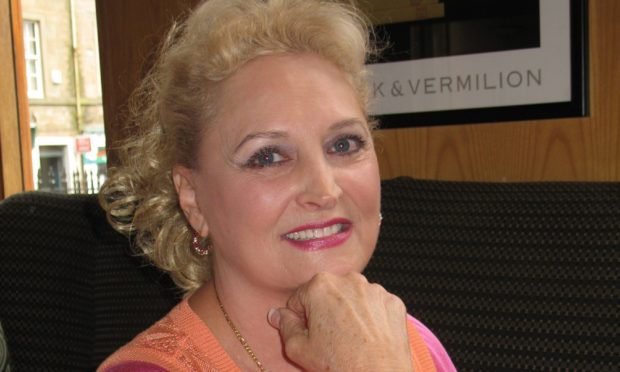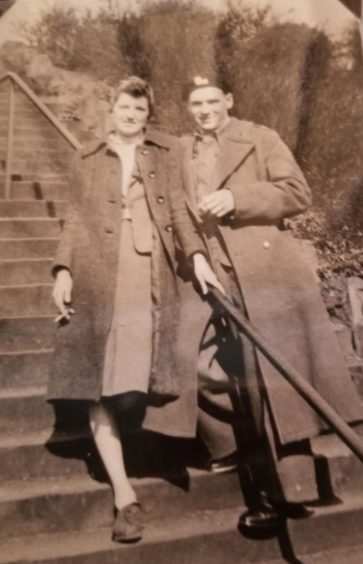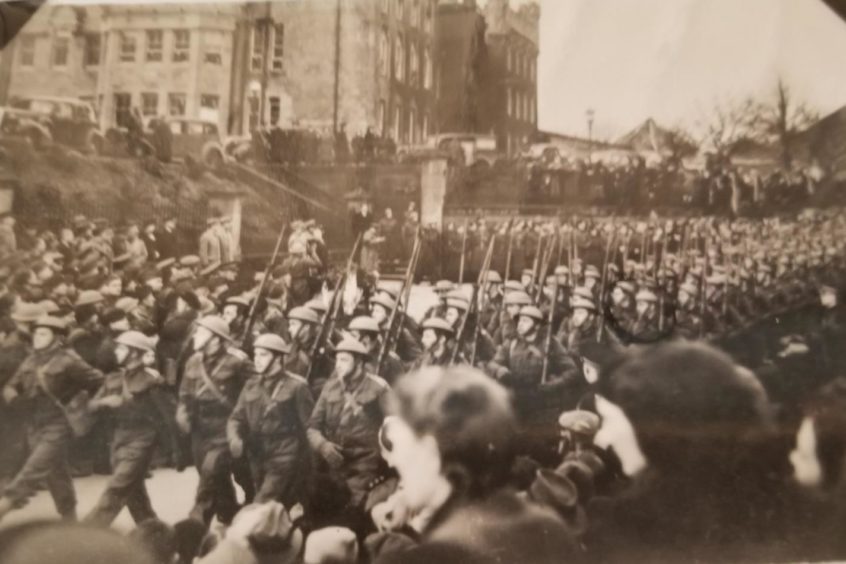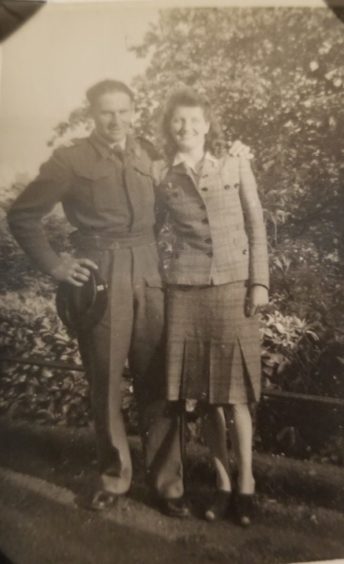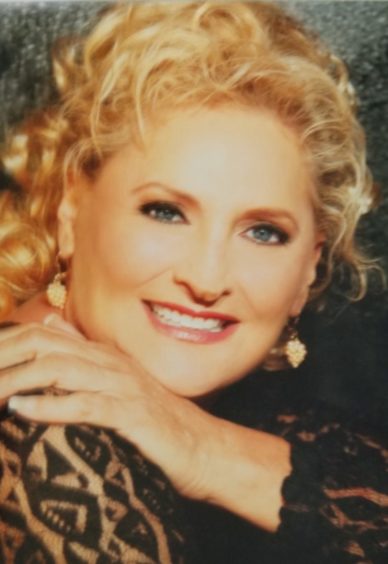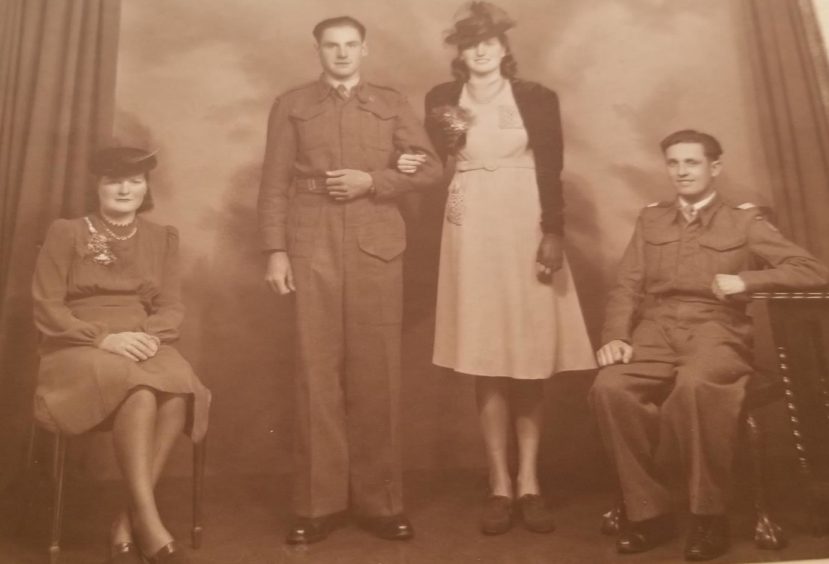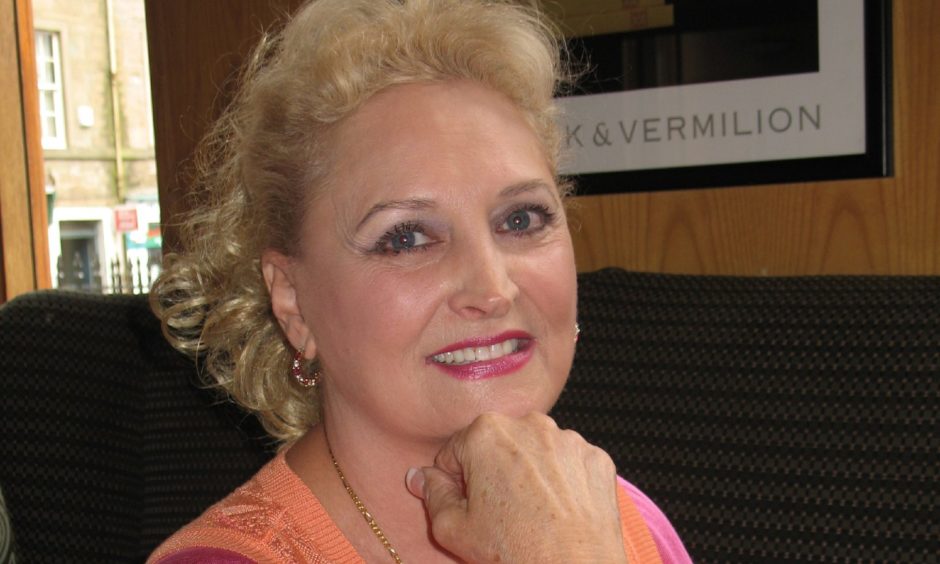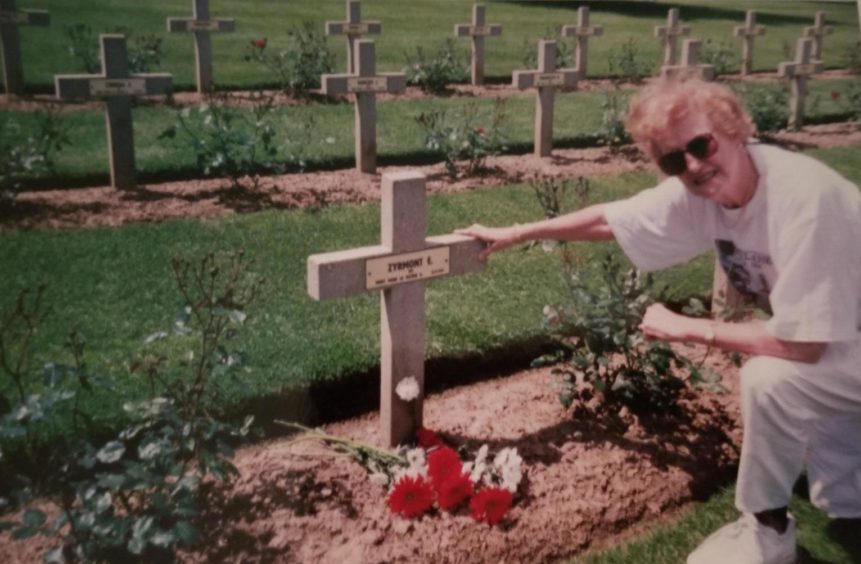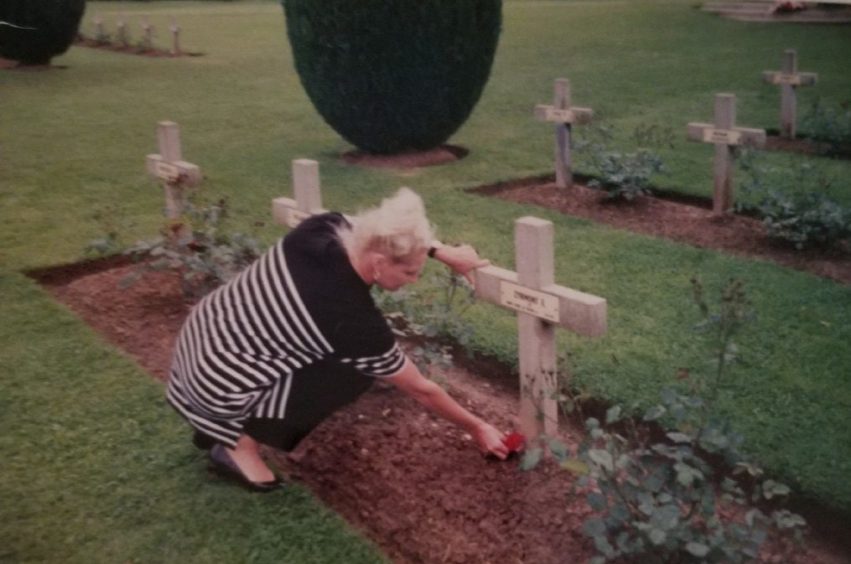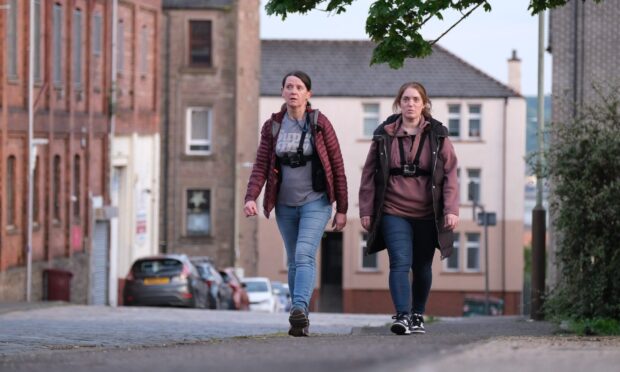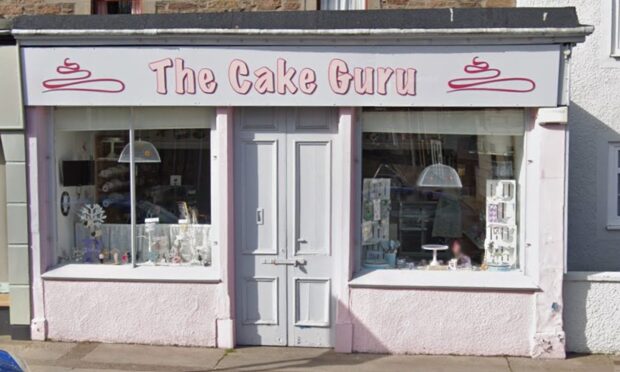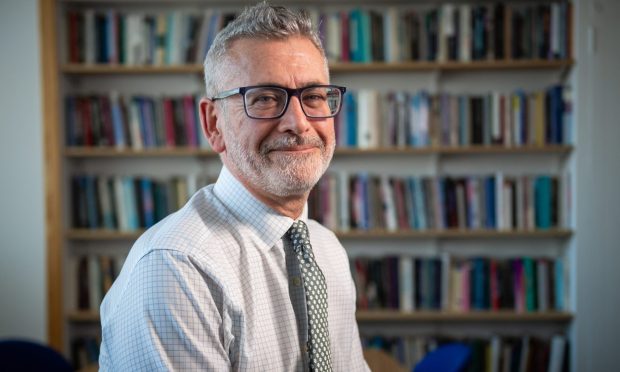Michael Alexander speaks to Dundee-born Scottish-American romance author Alinka Zyrmont about her latest book which charts the ‘human tragedy’ of the long lost WWII Polish soldier father she never knew.
When Dundee-born Scottish-American romance author Alinka Zyrmont wrote her recent book ‘As Long As We Still Live: A Polish Soldier’s Journey Through Europe During World War Two’, her motivations for doing so were clear.
Not only was it dedicated to her recently deceased Dundee born mother Margaret, it was also written in memory of Edward Zyrmont – the father she never knew – who gave his life fighting for Poland, and in admiration of the courage and sacrifice of all the heroes of the 1st Polish Armoured Division who died valiantly for our freedom and theirs.
Even more dramatically, however, it also honours the fact that Alinka was 53-years-old before she discovered that her birth father Edward even existed having been brought up to believe that another Polish soldier Alex Pawlowski was her father.
She only discovered the truth when, after a lifetime together, Alex ran off with a younger woman and her distraught mother, by now facing divorce, spoke about the life and death of Alinka’s war hero birth father who perished in France.
“What propelled me to write this book was not just to protect my father’s photographic work with yellowing photos and no negatives, but the unfairness that Polish soldiers received at the hands of Roosevelt and Churchill in order to placate Stalin,” says Alinka, 78, who publishes under the pen name Alicja Maria Zyrmont, in an interview from Arizona, USA.
“When my father sat in cold, damp tents in Scotland, he naively believed that Britain would protect Poland. He died not knowing that Poland was thrown out like dirty water to the mercy of the Communists.”
Nazi invasion of Poland, September 1939
Born in the Polish village of Mogilowce near Wolkowysk (now Belarus) on September 14, 1914, Edward Zyrmont came from a Catholic family of three brothers and a sister.
Coming from a relatively poor farming background, when money was scarce he worked as a locksmith and, in 1934, he joined the Polish Army.
By the time the Nazis invaded Poland in September 1939, he was an established career soldier with the 2nd Tank Battalion under the command of Colonel Maczek.
However, when it quickly became clear that intense fighting against the Nazis was futile, Maczek gave the order for his men to scatter by any means and re-group in Paris.
Edward escaped via Hungary and eventually got to France where the Poles regrouped to fight the Germans under the command of General Wladyslaw Sikorski, Commander-in-Chief of the Polish Armed Forces in exile.
Here, Edward was posted to 1 Tank Battalion. The 10 Polish Armoured Brigade took part in the campaign in France, operating First World War relic tanks given to them by the French.
But when the French capitulated in summer 1940, he escaped to Britain before he and other exiled Polish soldiers were shipped off to Scotland by train.
Now under British command, these largely non-English speaking Poles were initially tasked with defending the Scottish east coast from an expected Nazi invasion.
However, as time went on, and as other exiles arrived, many were redeployed.
By now commissioned as a sergeant, Edward retrained as a tank commander, preparing for D-Day and the re-taking of Europe.
Palais Dance Hall, Dundee
By 1941 and with thousands of exiled Poles training in Scotland, Edward and his colleagues would visit the Palais Dance Hall on South Tay Street, Dundee to “have drinks, meet the Scottish lassies, practice their English and sing.”
It was here that he met Dundee girl Margaret Lindsay, who played the piano at the dances.
One thing led to another and in 1942 Alinka was born.
“Mum who was very pretty used to play the piano by ear,” says Alinka.
“In the Lindsay family, they were all very musical. That’s where I inherited my musical talents.
“She had been in the Palais dance hall playing the piano. The Polish soldiers would gather around and start singing in Polish. She would say ‘I don’t know any Polish songs I play by ear. If you hum it I might be able to follow it’. So that’s what my dad did. He was a real charmer.”
Alinka was just two when her father was killed at the Battle of Falaise Gap in France on August 20, 1944, while serving with the 1st Polish Armoured Division. She was too young to remember him.
So when Margaret met another exiled Polish soldier at the Dundee Palais – Alex Pawlowski – who was an aircraft mechanic based at RAF Leuchars, and when they married in 1947 – Alinka’s mum brought up her daughter to believe Alex was her birth father even taking on the surname Pawlowski.
Emigration
With many exiled Poles unable to return home to Poland after the war following the Soviet Communist occupation, many struggled to find work in Scotland.
It was at this point that Alex Pawlowski secured work as a mechanic in Buenos Aires – taking his Dundee wife Margaret and her daughter Alinka with him.
Looking back, Alinka thoroughly enjoyed her childhood in Argentina.
Learning Spanish on top of the Polish-English she had learned in Dundee, she excelled in hockey, running and drama.
As the Peron political climate in Argentina deteriorated, however, the family eventually moved to Florida in the USA.
By now aged 16, Alinka worked by day to pay for her college education at night. Her mum was working as a teacher and by now Alex had a good job as a manager with Pan Am.
When Pan Am transferred Alex to Frankfurt in Germany, Alinka got a job with American Air Force TV.
Alex was later posted to Moscow then the Polish capital Warsaw, by which time Alinka was establishing her own career in the USA.
As a little girl with her “Shirley Temple blonde hair and blue eyes”, Alinka recalls that Alex “adored her like a doll” and she’d never had reason to question him as her father.
But after Alex “ran off” with a Polish girl younger than Alinka and divorced her mum after more than 30 years of marriage, Alinka, was rocked when her mum, upset and in shock, told her at the age of 53: “He’s not your real father.”
Alinka says: “That’s when she confesses ‘don’t worry about Alex because your father was a hero’.
“She then brings out this bag full of photographs of my real father Edward Zyrmont – a man I didn’t even know existed.
“The reason she didn’t tell me was her life was ‘too confusing’. Needless to say, I was in shock.”
At this time, Alinka’s life was already getting “complicated”.
Her husband had got into trouble with the internal revenue authorities in the USA and faced losing their house. Now she had learned her ‘father’ was not her father.
Affair with an Irish priest
In a bid to forget about her problems, she had immersed herself in the “fantasy world” of singing to escape.
Going through what she now admits was an “emotional crisis”, she’d met a “handsome and debonaire” Irish priest while singing in church.
A romance followed – which made international headlines in the mid-1990s – but after deciding not to divorce her husband because he was “her rock”, she realised she had to support her mother, and also wanted to find out more about her birth father.
After writing to the British Red Cross to access war records, who informed her her father was buried in the Polish Military Cemetery at Granville-Langannerie, France, she corresponded with Six Armies in Normandy author John Keegan who confirmed that her father, Edward Zyrmont, was mentioned in his book.
She was told that if she came to London to access war records, she would get all the information she needed. So that’s what she did, and the research for her now book began.
Fighting traits
Alinka says there’s no doubt learning about her birth father has helped her learn more about herself. Edward was a baritone singer and an adventurer – fighting traits that she sees in herself.
But she was also moved to honour a man who never got the chance to live which is why her book is based around so many of his original photographs.
After her divorce, Alinka’s mum joined the American Peace Corps as a teacher, including a spell in Poland. Another ‘fighter’, she worked in an office until she was 83.
Developing Parkinsons as she got older, however, it was her mum’s wish to return to Dundee and revisit all the places of her youth.
Having been cleared of abuse allegations against her mum made by a “jealous carer” in the USA, and after satisfying the authorities in Dundee that her mum was from the city, Margaret took residence in a Dundee care home. She died in Dundee in 2016 aged 95.
Although she passed before the book was published, Alinka takes solace that she enjoyed reading the first draft and is now at peace.
- As Long As We Still Live: A Polish Soldier’s Journey Through Europe During World War Two’ by Alicja Maria Zyrmont is available on Amazon or via Alinka’s website www.alinkazyrmont.com
